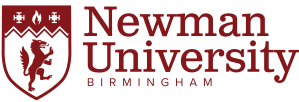Welcome to the Centre’s website and blog!
Following our Spring seminar series Looking at Mark’s Gospel through First Century Eyes, we had a very busy summer.
Voices from the Desert Conference July 2014
On one of the hottest days of the year we held our first conference. Voices from the Desert explored the journey of the Bible from dissent to orthodoxy and then back to dissent. We were very privileged to have Dr Lloyd Pietersen with us as our key note speaker. In the morning he read a paper outlining his reading of the Bible from a Post-Christendom context. It was a fascinating and challenging session helping us to see how differing contexts can influence the way we read a text, particularly when relating to position of power and influence. Lloyd followed this with an equally fascinating workshop where we were challenged to read some of the parables of Jesus from a minority (or dissenting) perspective. You can read more about Lloyd’s work in this area in his book Reading the Bible After Christendom published by Paternoster (2011).

Dr Susan Docherty and David McLoughlin also presented fascinating papers that helped provide an historical context for our later discussions. Sue’s paper on the use of the Old Testament in the New Testament gave us a fresh insight into the creative re-appropriation of texts by different groups as well as providing a more nuanced understanding of the continuity of Jewish thought and scriptural use within the New Testament writings. This was followed by an inspiring paper given by David that vividly painted the historical landscape in which the New Testament text was formed and highlighting, in particular, the political and economic environment of these times.

We were also delighted to have with us Symon Hill from Ekklesia with us. He ran an extremely thought provoking afternoon workshop looking at the Gospel of Mark from the perspective of a political activist often showing, not just a political dimension to a story or an account, but how politics can influence our understanding and reading of a text (as well as how a text may inform a person’s politics!).
Professor Martin O’Kane led a wonderful afternoon workshop using images of the paintings from the nearby Barber Institute of Fine Arts to explore painting as biblical interpretation. In many ways Martin’s workshop brought together all the individual elements from the rest of the day and highlighting the power of certain biblical images and motifs and their ability to be reinterpreted in a fluid process of appropriation and re-appropriation.
First Steps into the World of New Testament Greek
This was the first of our summer Greek schools and ran for three (fairly intense!) days. Noting so many people’s reservations about learning ancient Greek, the accent of the course was informality and fun in order to build confidence with the alphabet and language of the New Testament. Throughout the course we worked closely with the Greek New Testament and by the end of the three days those attending were able to be able to read simple sentences and clauses from it.

Alongside learning the language, one of the main aims of the course was to begin to understand the world in which the New Testament writings were produced and the way it was first circulated. It also raised an awareness of the whole process of what is involved in translating a text which would help to inform us about how we should approach a translated text. Therefore, alongside learning the language we also had a number of mini sessions on:
- The scribe and manuscript in the life of the New Testament.
- “Are we sure it originally said that?” On which Greek text are our English New Testaments based?
- How to enhance your textual study by using open-access, online Bible study tools (a tremendous resource for Bible study and commentary writing!).
- ‘How would you?’ problem sessions – YOU take the hot-seat and decide the best way to translate a problematic text.

Those attending the course came from a wide background including current students, post-graduates, those studying or with an interest in theology as well as a number of historians. Most of the time was spent working in small groups with set material, exercises and games. Working like this helped to create a more cooperative learning environment.
As I taught the course, I am probably not the best person to comment on its success, suffice to say I enjoyed it enormously and was really impressed with the ability and progress (not to mention unflagging good humour) of all those attending!
We plan to hold similar events next year – we will keep you posted!

